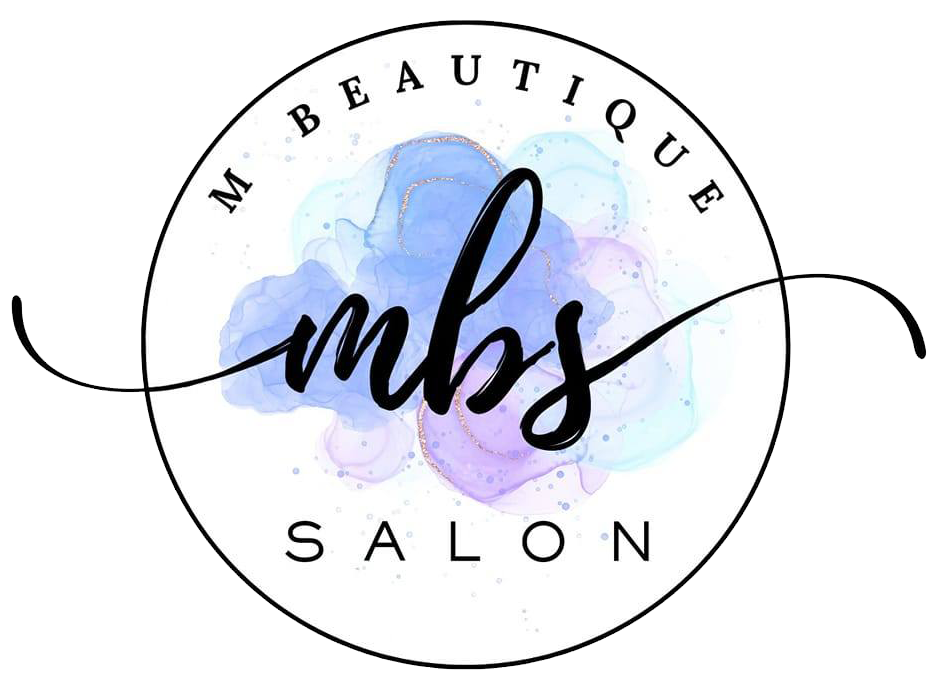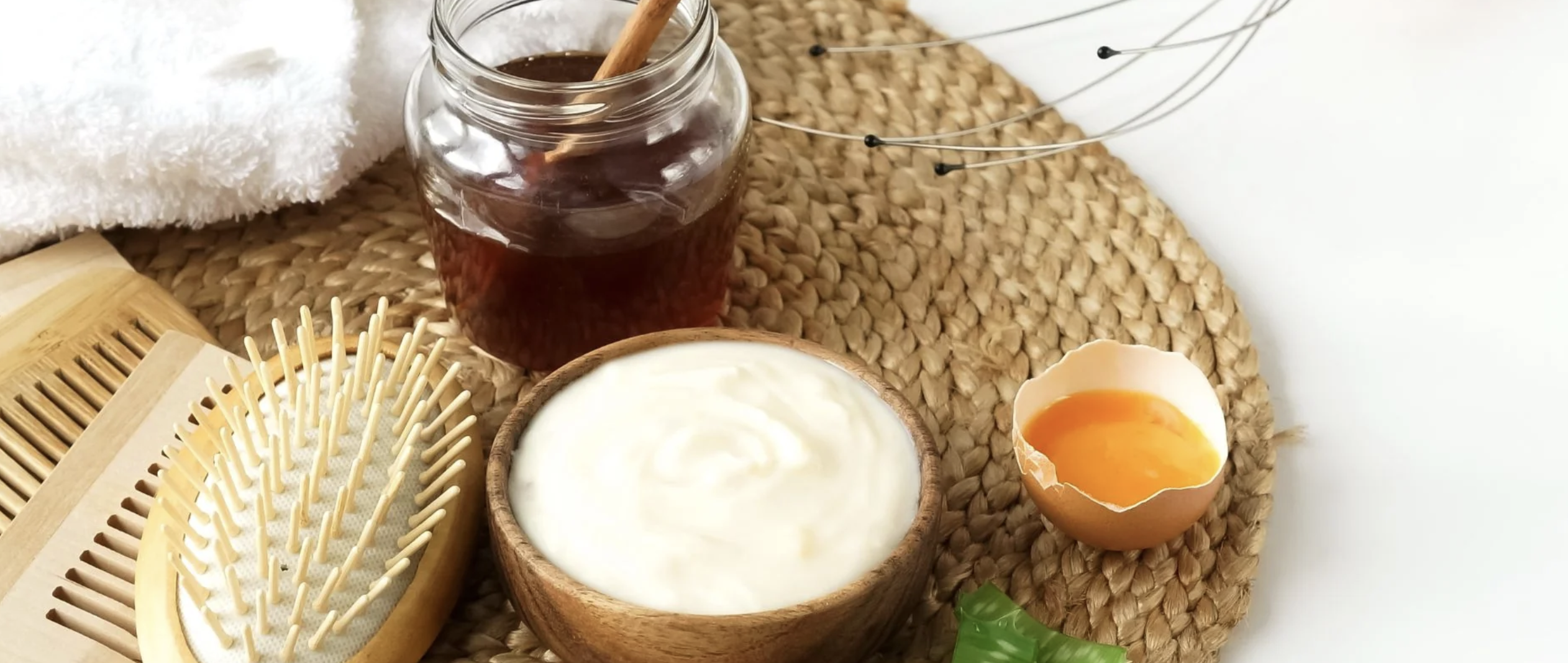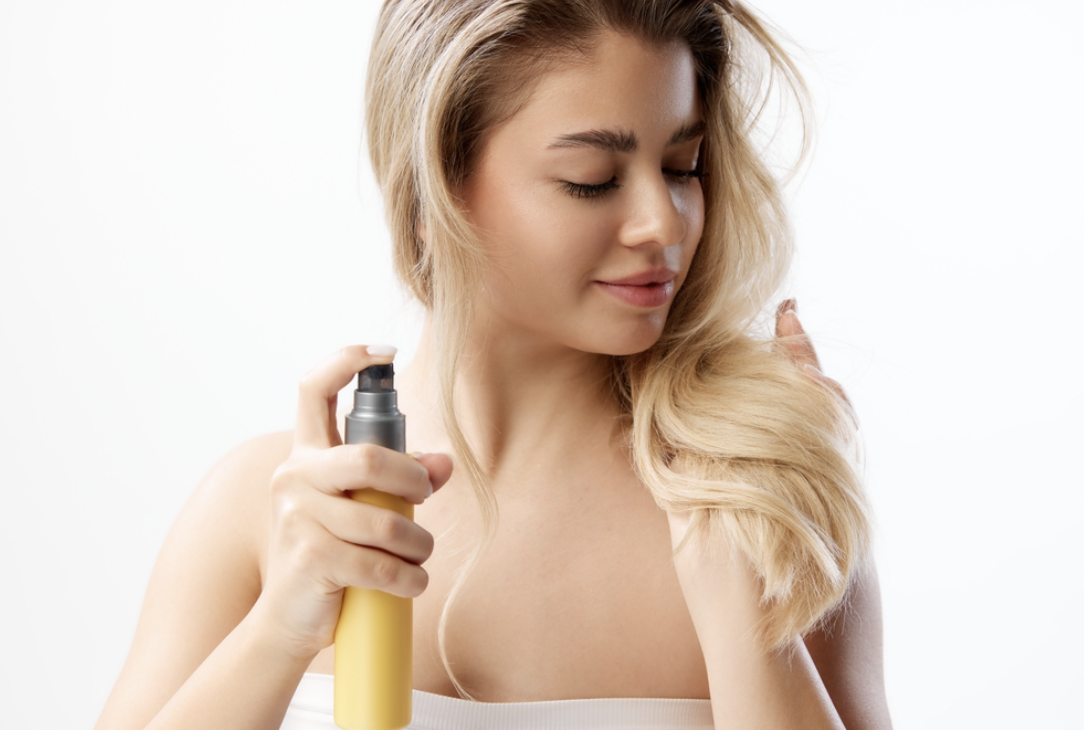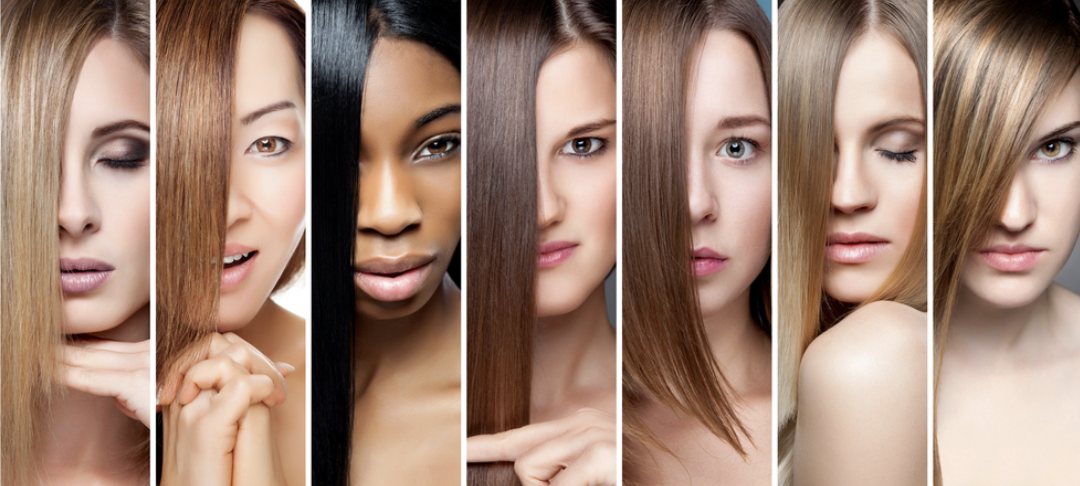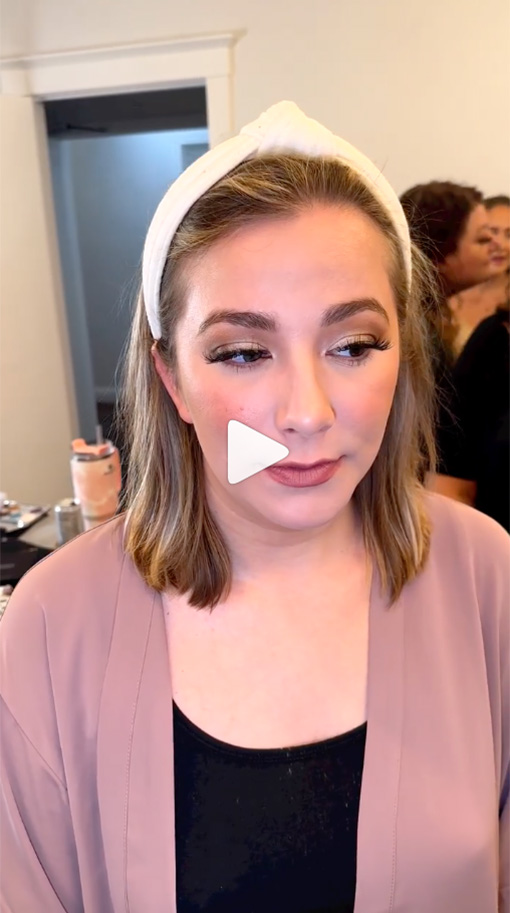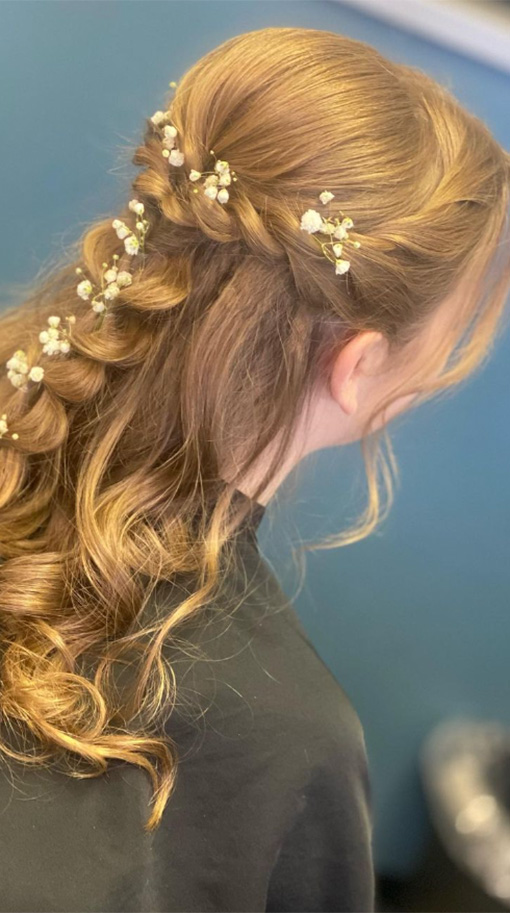Hair loss can be a distressing experience, impacting both confidence and self-image. To effectively prevent hair loss, it is essential to combine proper hair care techniques with a healthy lifestyle. Maintaining a balanced diet rich in essential nutrients like proteins, vitamins, and minerals can significantly support hair health and reduce shedding.
Additionally, gently massaging the scalp with coconut or olive oil can promote blood circulation and strengthen hair follicles, as highlighted by recent studies. Avoiding excessive heat styling and chemical treatments also plays a critical role in preserving hair strength and preventing breakage.
Incorporating low-level light therapy into your routine may further enhance hair growth and repair. By understanding and addressing the factors that contribute to hair loss, individuals can take proactive steps towards maintaining a full, healthy head of hair.
Understanding Hair Loss
Hair loss, also known as alopecia, can be affected by factors such as genetics, hormones, stress, diet, medical conditions, and medications.
Types and Causes of Hair Loss
Androgenetic Alopecia: This type is the most common, often referred to as male or female pattern baldness. It is primarily driven by genetics and hormones, specifically by androgens like dihydrotestosterone (DHT).
Alopecia Areata: This autoimmune condition leads to patchy hair loss. The immune system mistakenly attacks hair follicles, causing sudden hair loss in small, round patches.
Telogen Effluvium: Stress, surgery, illness, or sudden weight loss can trigger this condition. It pushes hair follicles into the resting phase, leading to increased shedding.
Traction Alopecia: Caused by hairstyles that pull on the hair roots, such as tight ponytails or braids, it can lead to hair breakage and loss along the hairline.
The Role of Genetics and Hormones
Genetics: Hereditary factors play a significant role, especially in androgenetic alopecia. If hair loss runs in the family, it is more likely to occur.
Hormones: Hormonal changes, such as those experienced during pregnancy, menopause, or with thyroid conditions, can significantly impact hair growth. Androgens, particularly DHT, can shrink hair follicles and shorten the growth phase.
Specific medical conditions and treatments, such as chemotherapy, can also lead to hair loss. Nutritional deficiencies, particularly in iron, protein, and vitamins like vitamin D and biotin, can affect hair health.
Understanding these elements helps in identifying the cause and seeking appropriate treatment or lifestyle adjustments to mitigate hair loss.
Preventative Strategies and Lifestyle
Effective hair loss prevention involves adopting a nutrition-rich diet and managing stress levels. Specific vitamins and minerals are crucial for hair health, while reducing stress can prevent damage to hair follicles.
Nutrition and Diet
Nutrition plays a pivotal role in maintaining healthy hair. Diets rich in vitamins and minerals, such as the Mediterranean diet, can promote hair growth. Consuming adequate protein is essential, as hair follicles are primarily made of protein. Vegan or vegetarian diets should include plant-based proteins like beans and nuts.
Vitamins and minerals support hair strength and growth. Iron, zinc, vitamin A, vitamin C, vitamin D, vitamin E, and biotin all contribute to a healthy scalp and hair. Iron and zinc prevent hair thinning by ensuring hair follicles receive enough oxygen and nutrients. Vitamin D can stimulate hair follicles, while vitamins A and E keep the scalp and hair hydrated.
Fatty acids, found in fish, nuts, and seeds, can improve hair elasticity and reduce breakage. Incorporating these nutrients into daily meals can significantly enhance hair health and reduce loss.
Stress Management
Stress has a direct impact on hair health. High stress levels can lead to hair loss conditions such as telogen effluvium and alopecia areata. To prevent stress-related hair loss, adopting relaxation techniques like meditation and deep breathing can be effective.
Regular exercise not only reduces stress but also improves circulation and promotes healthy hair follicles. Mindful practices, including yoga and tai chi, can further manage stress levels. Adopting a gentle hair care routine is important to prevent stress on hair strands.
Avoid hairstyles that pull tightly on hair, such as tight braids or ponytails, to reduce strain on follicles. Instead, opt for loose styles and reduce the use of heat styling tools to minimize damage. Scalp massages can stimulate blood flow and promote relaxation, contributing to healthier hair growth.
Medical Treatments and Supplements

Effective medical treatments and supplements can significantly aid in combating hair loss. These include both topical treatments and newer advancements in therapy, allowing patients to choose a method that fits their needs and condition.
Topical Treatments and Medications
Minoxidil (commonly known as Rogaine) is a widely used over-the-counter topical treatment that promotes hair regrowth. It can be applied directly to the scalp twice a day. Patients often observe results within a few months when used as directed.
Finasteride (Propecia) is another common medication, available by prescription, that prevents further hair loss by reducing dihydrotestosterone (DHT) levels in the scalp. It is taken orally and is particularly effective in male pattern baldness.
Essential oils such as rosemary oil, lavender oil, and tea tree oil can be massaged into the scalp to improve blood circulation and follicle health. While not as potent as minoxidil or finasteride, they offer natural alternatives and can aid in hair health maintenance.
Some supplements, like saw palmetto and pumpkin seed oil, are believed to block DHT production. Selenium and caffeine are other ingredients found in certain hair loss products, though their effectiveness is still under scientific review.
Advancements in Hair Loss Therapy
Laser therapy is a non-invasive treatment utilizing low-level lasers to stimulate hair follicles. This technique is safe and can be done at home with FDA-approved devices or in a clinic.
Platelet-rich plasma (PRP) therapy involves injecting the patient’s own concentrated platelets into the scalp to boost hair regrowth. This method helps in healing and stimulates growth factors in dormant hair follicles.
Newly explored medications include dutasteride, which works similarly to finasteride but may provide better results for some patients. The field of hair loss treatment continuously evolves with promising new insights and treatments in clinical trials, potentially offering even more effective solutions in the near future.
Identifying and Consulting Professionals
When dealing with hair loss, identifying the right professional is crucial. A dermatologist is often the first point of contact. They specialize in skin and hair, making them well-equipped to diagnose various forms of baldness and provide individualized hair loss treatment plans.
Genetic hair loss, such as male pattern baldness and female pattern baldness, requires specific expertise. Dermatologists can perform assessments to determine if genetics or other factors contribute to hair thinning.
For women experiencing menopause, hormonal changes can lead to hair loss. Consulting with a dermatologist can help differentiate between hormonal and other causes, such as medical conditions.
Hair transplants are a popular solution for irreversible hair loss. Dermatologists can refer patients to qualified surgeons who specialize in this procedure. They can also provide guidance on whether a hair transplant is the best option.
Patients may also benefit from consulting trichologists, who focus on hair and scalp health. Trichologists can address issues that might not require medical intervention but still affect hair growth.
Table: Professionals to Consult
| Professional | Specialization | Services Offered |
|---|---|---|
| Dermatologist | Skin and Hair | Diagnosis, Treatment, Hair Transplants |
| Trichologist | Hair and Scalp Health | Assessments, Hair Care Advice |
| Endocrinologist | Hormonal Imbalances | Hormonal Testing, Treatment Plans |
| Plastic Surgeon | Hair Transplants and Scalp Surgeries | Surgical Solutions for Hair Loss |
When consulting professionals, patients should prepare to discuss their medical history and any family history of hair loss. This information helps in creating an effective treatment plan tailored to their specific needs.
Frequently Asked Questions
This section addresses common concerns and queries about preventing hair loss, including effective treatments, dietary adjustments, and natural remedies.
What are the most effective treatments currently available to combat hair loss?
Effective treatments for hair loss include medications like Minoxidil (Rogaine), which can be bought over-the-counter in various forms such as liquid, foam, and shampoo. Prescription medications are also available and can be discussed with a healthcare provider.
How can changes in diet contribute to preventing hair loss?
Inadequate protein intake can negatively impact hair health, making it crucial for vegans and vegetarians to monitor their protein consumption. Including more protein in the diet may aid in hair growth, as noted by the Cleveland Clinic.
Which hairstyles or practices should be avoided to minimize hair thinning?
Avoiding hairstyles that pull tightly on the hair, such as braids, hair extensions, or tight ponytails, can help minimize hair thinning. Using harsh haircare products and excessive processing like perms and bleaching should also be avoided, as they can lead to significant hair damage, according to the Cleveland Clinic.
Can stress play a role in hair loss, and how can it be managed to prevent this?
Stress can indeed contribute to hair loss. Managing stress through practices such as regular exercise, meditation, and adequate sleep can help mitigate its impact on hair health. Seeking professional guidance for stress management can be beneficial in maintaining overall well-being.
Are there any natural remedies that have been proven to help with hair retention?
Natural remedies like coconut oil and olive oil may aid in hair health. Massaging coconut oil into the scalp can promote better blood flow and possibly support hair regrowth. Olive oil can protect hair from dryness and associated damage.
How does hormone balance affect hair health, and what approaches can help maintain it?
Hormonal imbalances can significantly affect hair health. Maintaining hormone balance through a healthy lifestyle, including proper diet and regular exercise, is essential. Consulting with healthcare professionals about hormone regulation can also be helpful in preventing hair loss and promoting overall hair health.
